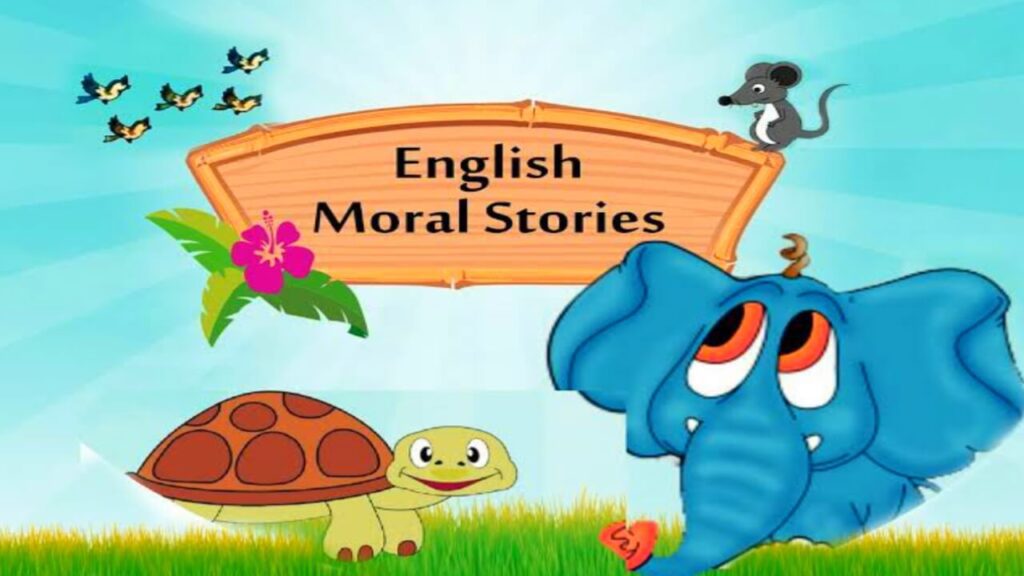
Very Short English Stories | Which Is The Shortest Story In English?
साहित्य में कहानी सुनाने के कई अलग-अलग रूप हो सकते हैं। लघुकथाओं में कुछ दिलचस्प बात है जो कुछ ही वाक्यों में गहरा संदेश दे सकती है, इस तथ्य के बावजूद कि महाकाव्य उपन्यास और लंबी कहानियाँ अक्सर सुर्खियों में रहती हैं। बहुत छोटी अंग्रेजी कहानियाँ, जिन्हें फ्लैश फिक्शन या माइक्रोफिक्शन के रूप में भी जाना जाता है, ने सीमित शब्द संख्या में प्रभाव डालने की क्षमता के कारण लोकप्रियता हासिल की है।
इस बहुत छोटी अंग्रेजी कहानियों की पोस्ट में, हम संक्षिप्त कहानी कहने की शक्ति के साथ-साथ इन बहुत छोटी अंग्रेजी कहानियों और छोटी कहानियों को लिखने की कला के कई उदाहरण देखेंगे।
अति लघु अंग्रेजी कहानी की परिभाषा
बहुत छोटी अंग्रेजी कहानियाँ या फ्लैश फिक्शन बहुत छोटी कहानियाँ हैं, जो आमतौर पर कुछ वाक्यों या सैकड़ों शब्दों में फैली होती हैं। इस लघु कहानी का उद्देश्य एक संपूर्ण कथात्मक चाप विकसित करना है जो पाठक को संक्षिप्त भाषा, समृद्ध कल्पना और स्पष्ट रूप से परिभाषित कहानी के साथ आकर्षित करता है।
फ्लैश फिक्शन एक छोटी अंग्रेजी कहानी को उसके मूल तक संक्षिप्त कर देता है, जिससे पाठक को संक्षिप्त विवरण भरने, अपनी कल्पना का उपयोग करने और कुछ अपनी लघु अंग्रेजी कहानी की व्याख्या करने के लिए छोड़ दिया जाता है। छोटी-छोटी कहानियाँ अक्सर किसी विशेष भावना को जगाने या एक शक्तिशाली संदेश देने के लिए एक ही क्षण पर ध्यान केंद्रित करती हैं।

बहुत छोटी अंग्रेजी कहानियाँ बनाने की कला
सम्मोहक, बेहतरीन लघु अंग्रेजी कहानियाँ बनाने के लिए अद्वितीय कौशल की आवश्यकता होती है। एक मजबूत भावनात्मक प्रतिक्रिया उत्पन्न करने या एक यादगार छवि बनाने के लिए विशिष्ट भाषा का उपयोग करते हुए, लेखकों को प्रत्येक शब्द और वाक्य को सावधानीपूर्वक चुनना चाहिए।
शब्द गणना के कारण प्रत्येक वाक्य अर्थपूर्ण, कथानक को आगे बढ़ाने वाला और पाठक पर प्रभाव पैदा करने वाला होना चाहिए। फ़्लैश फिक्शन की संक्षिप्तता के लिए कल्पना के कुशल उपयोग की भी आवश्यकता होती है ताकि लेखक एक ज्वलंत दृश्य को चित्रित कर सके या कुछ वाक्यों में एक चरित्र विकसित कर सके।
प्रभावी बहुत छोटी अंग्रेजी कहानियाँ अक्सर पाठकों को किसी अंतर्निहित विषय या संदेश के बारे में सोचने पर मजबूर करने के लिए मोड़ या अप्रत्याशित अंत का उपयोग करती हैं। ये मोड़ अपेक्षाओं को चकनाचूर कर सकते हैं और पूर्व धारणाओं को चुनौती दे सकते हैं, पाठक में जिज्ञासा और प्रतिबिंब को उत्तेजित कर सकते हैं।
बहुत छोटी अंग्रेजी कहानियों के उदाहरण
1. “उपहार”
उसने उसे एक खूबसूरती से लपेटा हुआ बक्सा दिया और उसने उत्सुकता से उसे खोला। उसे अपने भीतर एक दर्पण मिलता है जो उसकी अपनी तस्वीर दिखाता है, जो एक अनुस्मारक के रूप में कार्य करता है कि आत्म-स्वीकृति सबसे अच्छा उपहार है जो किसी को भी मिल सकता है।
2. “पदचिह्न”
जासूस बर्फ में पैरों के निशानों की जांच करता है और जंगल के अंदर तक उनका पीछा करता है। जब वह आख़िरकार पकड़ लेता है, तो उसे पता चलता है कि वह अपने विचारों से विचलित होकर उसके नक्शेकदम पर चल रहा है।
3. “कानाफूसी”
जब बुजुर्ग व्यक्ति की आवाज धीमी हो गई तो वह अपनी पोती के लिए कहे गए बुजुर्ग व्यक्ति के आखिरी शब्द सुनने के लिए नीचे झुक गई। इसके बाद की खामोशी में उसे एहसास हुआ कि प्यार शब्दों से परे हो सकता है और दिल की गहराइयों में गूंज सकता है।
4. “प्रतीक्षालय”
वह डरे हुए पैरों से चलते हुए, डॉक्टर के प्रतीक्षा क्षेत्र में इंतजार कर रही थी। फ्रंट डेस्क क्लर्क ने अचानक उसका नाम पुकारा और उसे राहत की अनुभूति हुई। जिस निदान की उसने आशा की थी, उसके बजाय उसे जीवन में एक नया पट्टा दिया गया।
5. “मिलें”
भरे कमरे में उनकी नजरें मिलीं और उसी क्षण दुनिया गायब हो गई। जैसे-जैसे वे एक-दूसरे के करीब आते गए, समय मानो रुक गया, यह जानते हुए कि इस आकस्मिक मुलाकात में उनके जीवन को बहुत बेहतर तरीके से बदलने की क्षमता थी।
बहुत छोटी अंग्रेजी कहानियाँ एक सशक्त कहानी को संक्षिप्त रूप में बताने की अपनी क्षमता से पाठकों को मोहित कर लेती हैं। सटीक भाषा, जीवंत कल्पना और अप्रत्याशित मोड़ के साथ, यह छोटे आकार की कहानी पाठकों के दिलो-दिमाग पर अमिट छाप छोड़ती है। पाठक की कल्पना को उत्तेजित करके और व्याख्या को आमंत्रित करके, फ्लैश फिक्शन जिज्ञासा जगाता है और प्रतिबिंब को प्रोत्साहित करता है।
प्रत्येक शब्द और वाक्य में वजन होता है और सीमित संख्या में शब्दों के भीतर एक संपूर्ण कथा बनाने का एक विशिष्ट उद्देश्य पूरा होता है। चाहे वह एक विचारोत्तेजक संदेश हो, एक दिल दहला देने वाला मोड़ हो, या एक आश्चर्यजनक मोड़ हो, वेरी शॉर्ट इंग्लिश स्टोरीज़ से पता चलता है कि कहानी कहने का समय हमेशा लंबा नहीं होता है। इसके बजाय, ये लघु कथाएँ पाठकों को याद दिलाती हैं कि संक्षिप्तता उतनी ही शक्तिशाली, मनोरम, प्रेरक और पाठकों को और अधिक जानने के लिए उत्सुक बनाए रखने वाली हो सकती है।